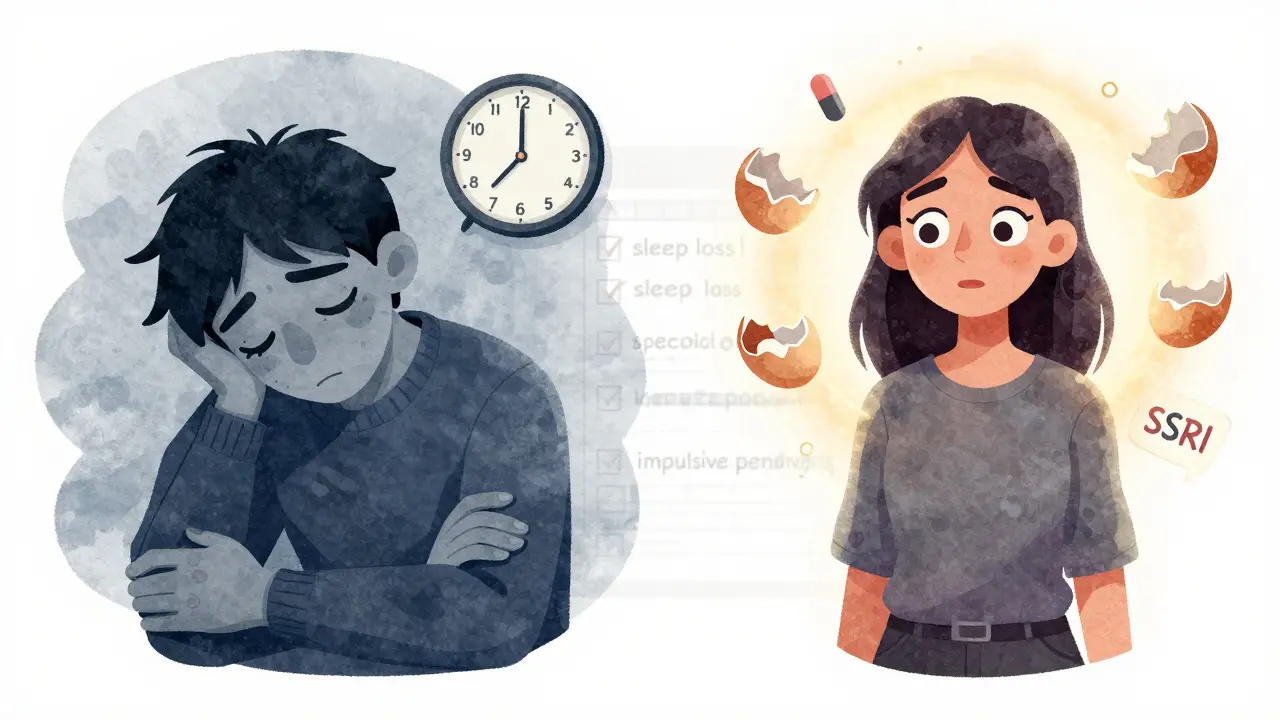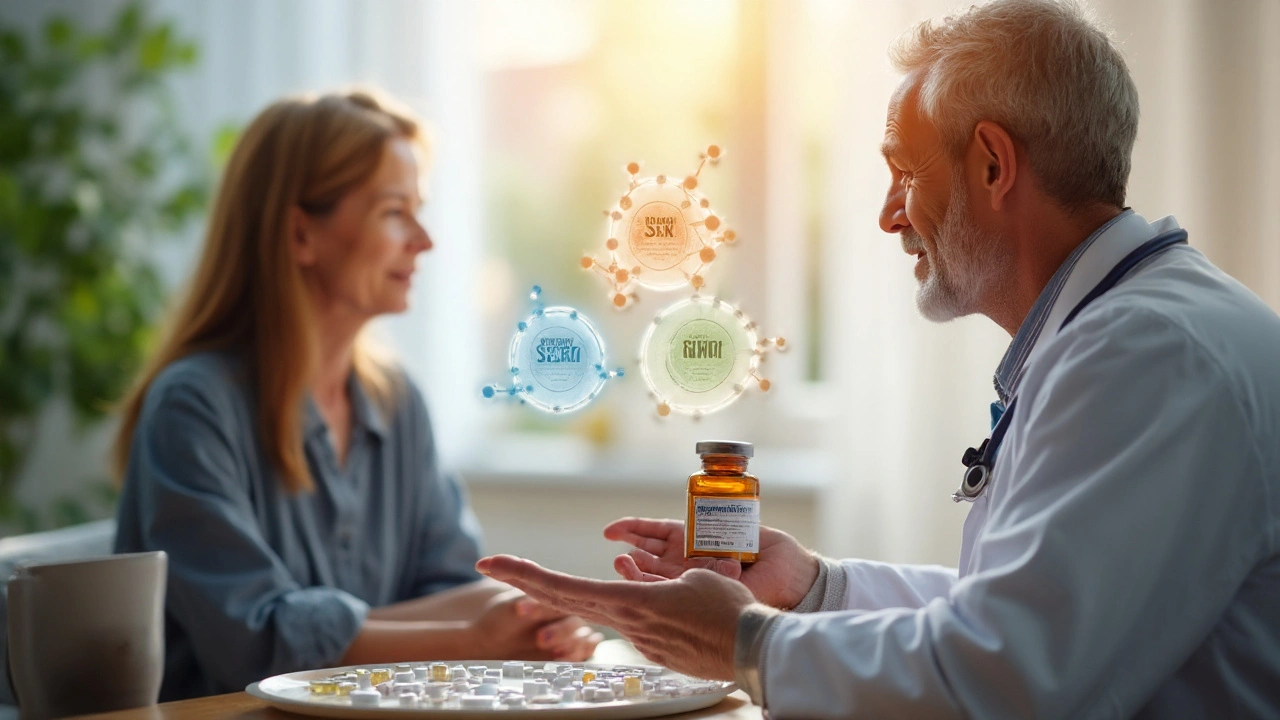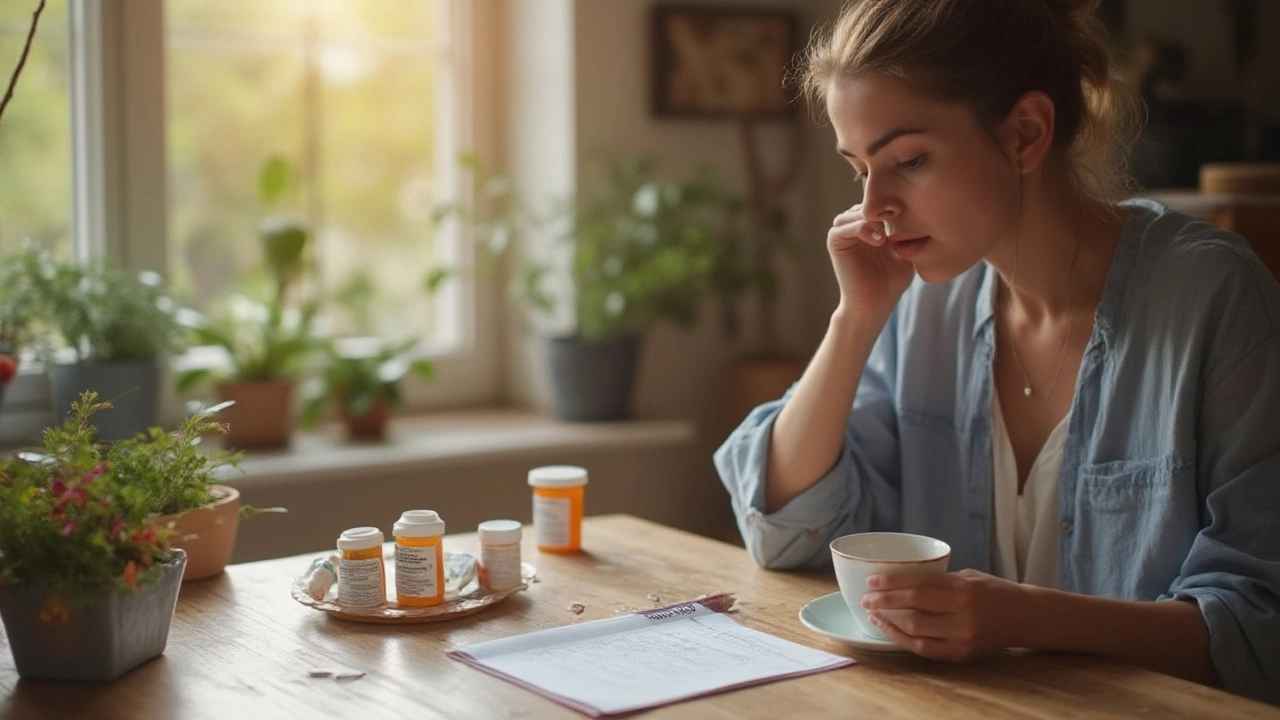Depression treatment: clear options and simple first steps
Feeling low for weeks or losing interest in things you used to enjoy? Depression is common and treatable. This page gives practical options so you know what to try first, what helps fast, and when to get immediate care.
What treatment options work?
There are three main routes that actually help: therapy, medication, and lifestyle changes. Therapy—like cognitive behavioral therapy (CBT) or interpersonal therapy (IPT)—teaches skills to change negative thinking and improve relationships. Many people feel better after a few months of regular sessions.
Medications, usually called antidepressants, adjust brain chemistry to ease symptoms. Common classes include SSRIs (like sertraline), SNRIs (like venlafaxine), and atypical antidepressants. They can take 4–8 weeks to show full effects. Side effects vary, so talk with a prescriber about risks and what to watch for.
Lifestyle changes speed recovery and reduce relapse. Good sleep, regular walks, balanced meals, and small daily goals help mood. Avoid heavy alcohol or drug use—they make depression worse. Consistent, tiny actions matter more than big one-time efforts.
Practical steps to start right now
1) Tell someone you trust. Saying it out loud reduces isolation and helps you get support. 2) Book a medical checkup. Some health problems and drugs can cause low mood. 3) Find a therapist or counselor. Use your insurance directory, local clinics, or online therapy platforms if travel is hard. 4) If medication seems right, ask a doctor for a short, clear plan: goals, timeline, and side-effect checks.
If you worry about paying for care, look for community mental health centers, sliding-scale clinics, or medication discount tools. Our site also reviews safe online pharmacies and savings apps that can make prescriptions cheaper.
Emergency signs you should act now: thoughts of self-harm, planning suicide, inability to care for yourself, or severe weight loss and confusion. If any of these appear, call emergency services or a crisis line immediately. In the U.S., dial 988 for the Suicide & Crisis Lifeline; if you’re elsewhere, contact local emergency numbers.
Combining treatment often gives the best results. Therapy plus medication helps many people regain energy and clear thinking faster than either one alone. Track your mood in a notebook or an app. Small improvements—more energy, better sleep, fewer negative thoughts—usually come first and show that treatment is working.
Want help finding resources? Start with your primary care doctor, a local mental health clinic, or trusted online directories. If you’re cautious about buying meds online, read reviews and pick pharmacies that require a prescription and show clear contact info. Depression can feel overwhelming, but step-by-step care and the right support will move you toward feeling better.
Bipolar Depression vs. Unipolar Depression: Key Differences in Diagnosis and Treatment
Bipolar and unipolar depression look alike but require completely different treatments. Learn the key diagnostic signs, why misdiagnosis leads to worse outcomes, and what treatments actually work for each.
Keep ReadingTofranil (Imipramine) vs. Other Antidepressants: Comparing Benefits, Risks & Alternatives
A detailed comparison of Tofranil (Imipramine) with other antidepressants, covering mechanisms, side effects, dosing, and how to choose the right alternative.
Keep ReadingSmart Augmentation Strategies with Wellbutrin: Lithium and Atypical Antipsychotics as Gamechangers
Explore how adding lithium or atypical antipsychotics to Wellbutrin can boost depression treatment, and why full replacement isn't always needed. Clear, user-focused advice.
Keep Reading


